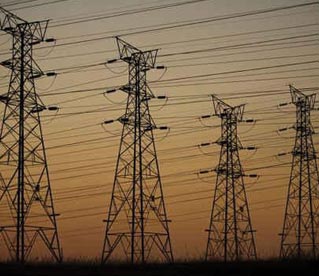
Moscow Behind Plans for Central Asian Energy Grid Bypassing Uzbekistan
Publication: Eurasia Daily Monitor Volume: 11 Issue: 114
By:

Moscow is using much the same strategy to punish and rein in Tashkent for its pro-Western tilt that it has used against Kyiv: promoting separatism in Karakalpakstan (see EDM, windowoneurasia2.blogspot.com, June 13) and organizing the regional power grid in Central Asia in such a way that it bypasses Uzbekistan. Indeed, the latter strategy has recently become much more overt.
A week ago (June 20), Dushanbe’s Avesta news agency reported that Kazakhstan, Kyrgyzstan and Tajikistan want to create an electricity grid uniting the three countries but bypassing Uzbekistan. As is typically the case with projects of this kind, the geopolitical consequences of such an arrangement are likely to be more important than the practical ones. Furthermore, the primary beneficiary of them is likely to be Russia and its desire to re-assert control over Uzbekistan, rather than the three countries directly involved (turkist.org, June 20).
Unlike Kazakhstan, Kyrgyzstan or Tajikistan, all of which want to revive the late-Soviet-era Economic Cooperation Organization which linked them and other Central Asian states together and which have signaled their willingness to join Moscow-led projects like the Customs Union and the Eurasian Union, Tashkent has pointedly avoided doing so. Moreover, it has cooperated with the North Atlantic Treaty Organization (NATO) and the United States far more closely than the others.
Not surprisingly, the Kremlin has been anything but happy about this state of affairs and has sought ways to punish Uzbekistani President Islam Karimov for his independent ways. Strikingly, Moscow appears to be using the same strategy it has adopted in the case of Ukraine. And this carries with it rather profound implications for the future given what is happening in Donetsk and Luhansk now.
Yury Chernogayev, a Tashkent-based journalist, says that building a Central Asian energy grid without Uzbekistan is possible although much more expensive because Tashkent, the largest and most central city in the region, is where the regional electricity grid control center has been. Moreover, he notes, the restoration of a “Soviet” power grid arrangement, one that has gradually fallen into disuse over the last 15 years, may do little to help the countries of the region, although it could hurt Uzbekistan. Indeed, that seems to be the main purpose, he argues (turkist.org, June 20).
Constructing the electricity grid project would necessitate enormous Russian investments, Chernogayev says. But in addition, it would also require overcoming the lack of necessary expertise in all three of the countries, the need to build new power lines through some rather inhospitable territory, and a political structure to coordinate all this. And doing all that, he concludes, will be “especially” difficult if Uzbekistan is not involved.
Beate Eschment, a German expert on Central Asia, agrees. She told Deutsche Welle’s Russian service that it is clear this project is designed in the first instance to isolate Tashkent, which has been “an outsider” as far as various regional cooperation projects are concerned, and to make sure that none of the three participants are in any way dependent on Uzbekistan for energy or anything else. Moscow’s motives here are clearly driven by its expressed desire to re-integrate the post-Soviet region as well as punish any of the 11 former non-Russian Soviet republics that seek to chart their own political course independent of Russia. Obviously, Eschment adds, Kazakhstan, Kyrgyzstan and Tajikistan would have been unlikely to propose such an arrangement if Russia did not stand “behind the plan for the restoration of a single energy system” in Central Asia. (Deutsche Welle–Russian Service, June 20).
Additional evidence for that conclusion, she suggests, is that Tajikistan and Kyrgyzstan are in conflict about many things, including water, and would find it difficult to agree on a power grid if Russia were not pushing it. And Kazakhstan, as much as it wants to be the leader of the region and displace Uzbekistan in that role, would not be willing to spend the money to restore such a network on its own. Eschment adds that Astana is not interested in an open conflict with Tashkent on its own, but if Russia is behind it and will pay, then Kazakhstan is ready to go ahead.
Uzbekistan will certainly react, the German expert says, but its options are limited. Tashkent’s earlier decision to restrict gas deliveries to Kyrgyzstan failed to have the impact it hoped for, and as a water-short republic, Uzbekistan can only go so far before Kyrgyzstan and Tajikistan restrict the flow of water into the Ferghana Valley. Indeed, any response from Tashkent to this latest regional integrationist idea almost certainly will help push Moscow’s anti-Uzbekistan arrangement forward.
Moscow has used a divide and rule strategy in Central Asia ever since Joseph Stalin created the republics of that region through his policy of national-territorial delimitation in the 1920s, but rarely has that strategy been deployed so boldly. And what makes this particular action by the Kremlin all the more noteworthy is that it will promote the kind of tensions within and among the Central Asian republics that may prevent both sides in this current game from escaping Russian control.




